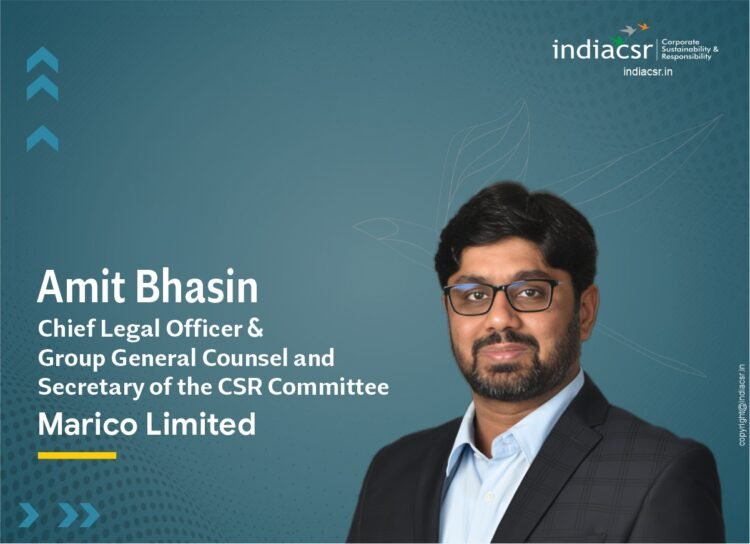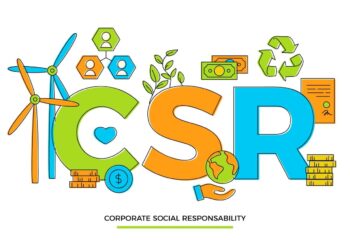
Words Amit Bhasin
The traditional view of supply chains as mere logistics networks is rapidly evolving. ESG is no longer just a regulatory obligation; it’s an opportunity for businesses to unlock new value, enhance brand reputation, and attract conscious consumers. The rise of sustainable investing and socially conscious consumerism has created a powerful incentive for companies to prioritize ESG in their supply chains. Building strong relationships with suppliers, customers, and communities is essential for successful ESG implementation. Engaging stakeholders can help identify risks, develop solutions, and create shared value.
By integrating ESG principles into their supply chains, companies can mitigate risks, enhance their reputation, attract conscious consumers, and drive sustainable growth.
The ESG Imperative: More Than Just Compliance
We need to bring in here the global Climate urgency which has called MNCs to adopt ESG and step up. India is also taking the lead in terms regulatory framework. While regulatory demands have undoubtedly played a significant role in driving ESG adoption, the benefits extend far beyond compliance. ESG considerations offer a multitude of strategic advantages for businesses:
- Risk Mitigation: Addressing environmental and social issues can help prevent costly disruptions, reputational damage, and legal liabilities. For example, companies that fail to address climate change risks may face supply chain disruptions due to extreme weather events.
- Sustainable Growth: ESG integration can lead to operational efficiencies, cost savings, and long-term sustainability. For instance, in the effort toward achieving our Net Zero emission goal, Marico strives to optimise its energy footprint and invest in low-carbon technology to minimise operational emissions. A testament to the same is our Perundurai facility, which completely operates on renewable energy sources and has been upgraded with smart energy installations that enhance the overall operational efficiency. The plant has been externally certified as ‘carbon neutral’, for the fourth year in a row.
- Enhanced Reputation: Companies with strong ESG practices are more likely to attract investors, customers, and top talent. A positive reputation can lead to increased brand loyalty, customer satisfaction, and employee engagement.
- Social Impact: By prioritizing social initiatives, businesses can contribute to the well-being of local communities, thus developing a deeper connect and understanding of your stakeholders. ESG integration helps companies positively impact local communities and create a better future. For example, Marico’s Jalgaon unit (drought prone region) implemented comprehensive water conservation measures, including rainwater harvesting, infrastructure development and creation of water conservation potential, which not only enhanced water availability for the company but also contributed to agricultural sustainability and improved the quality of life for local communities.
- Innovation: Addressing ESG challenges often requires innovative solutions, which can drive business growth and competitiveness. For example, companies that develop sustainable products or processes can gain a competitive edge in the market. Moreover, leveraging technology can be a powerful tool for improving transparency, traceability, and sustainability. Companies can track the ESG performance of their suppliers, identify risks, and implement more effective initiatives.
Key considerations while integrating ESG into supply chains:
Integrating ESG into supply chains demands a comprehensive approach that spans the entire value chain. Backward integration—where companies take control by acquiring or partnering with suppliers—lets them set high environmental, social, and governance standards from the start. This hands-on approach ensures sustainability and ethical practices are deeply woven into production. By actively collaborating with vendors and aligning their practices with ESG goals, companies can drive meaningful change and extend their positive impact throughout the entire supply chain. Here are some key factors to consider:
- Supplier Assessment and Ethical Sourcing: Evaluate suppliers based on their ESG performance and commitment to sustainability. This includes assessing their environmental impact, labour practices, and governance practices. A shining example of this transformative approach is Marico’s pioneering Responsible Sourcing Framework, SAMYUT, which harmoniously balances Environmental Stewardship, Ethical Responsibilities, and Social Empowerment, minimising our environmental footprint throughout the value chain, from sourcing to production and distribution.
- Labour Standards: Promote fair labour practices and protect workers’ rights throughout the supply chain. This includes ensuring that workers are paid a fair wage, have safe working conditions, and are not subjected to discrimination.
- Environmental Impact: Minimize the environmental footprint of operations and reduce waste. This involves implementing measures to reduce greenhouse gas emissions, conserve water, and minimize waste generation.
- Community Engagement: Foster positive relationships with local communities and support sustainable development initiatives. This involves engaging with stakeholders to address social and environmental concerns and contribute to the well-being of the communities where businesses operate.
The Future of ESG in Supply Chains
As we look to the horizon, the future of ESG in supply chains promises to be both transformative and exhilarating. The convergence of sophisticated technologies, such as AI-driven analytics and blockchain, will revolutionize how we track and enhance sustainability practices. Companies will be empowered to achieve unprecedented levels of transparency and efficiency, enabling them to address environmental and social impacts with remarkable precision. Collaborative ecosystems will emerge, bringing together diverse stakeholders to tackle global challenges through innovative, collective efforts.
The evolving expectations of consumers and investors will drive businesses to not only meet but surpass current sustainability standards. By embracing these advancements and trends, companies can forge resilient, forward-thinking supply chains that not only respond to global demands but also set new benchmarks for responsible and impactful business practices.
About the Author

Amit Bhasin, Chief Legal Officer & Group General Counsel and Secretary of the CSR Committee, Marico Limited.
(India CSR)






















